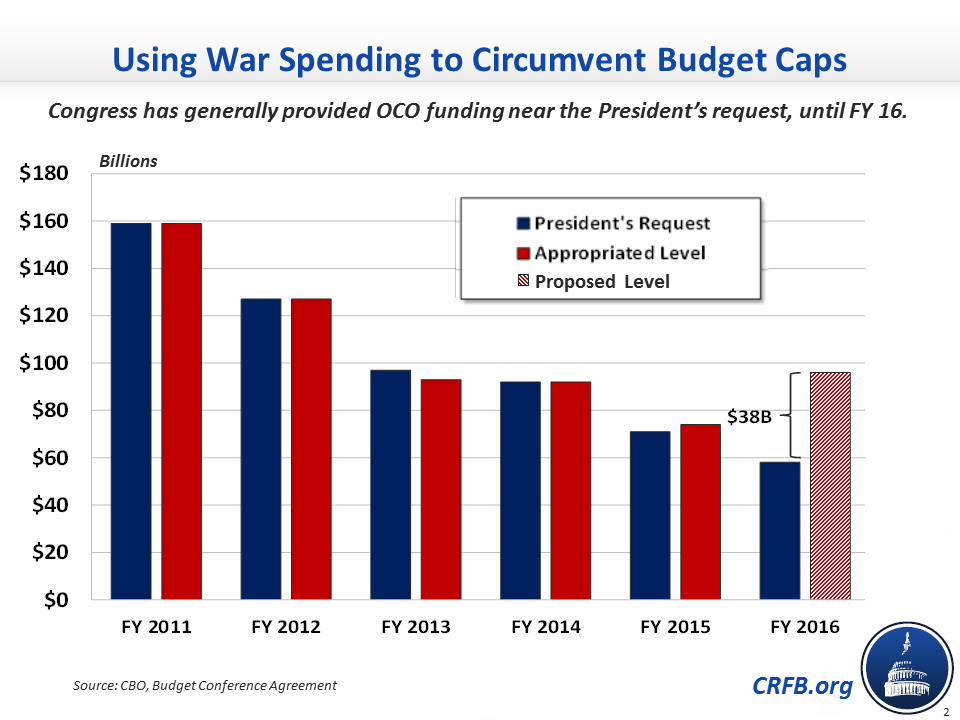Will Budget Negotiators Depend on OCO?
Recent press reports indicate that the ongoing budget negotiations between Congressional leaders and the White House may lean on the use of the Overseas Contingency Operations (OCO), or war funding, account to boost defense spending. Doing so would allow them to spend above the defense budget caps without offsetting the cost.
As policymakers work toward a plan to offset the cost of sequester relief, they should resist the temptation to make their job easier by relying on the OCO gimmick. We recognize that there is significant pressure to increase defense spending above the caps. Indeed, over 100 House Republicans signed a letter insisting on at least $38 billion above the Fiscal Year (FY) 2016 cap for defense, or $561 billion total.
As Congressional Quarterly reported (paywall) recently, the author of the letter, Rep. Michael Turner (R-OH) said:
“We would be willing to do OCO . . . As long as we get the aggregate amounts of spending, I think we’re comfortable that we will have funded our national security,” Turner said.
However, as we have written many times, using OCO to circumvent budget caps would be incredibly irresponsible from a fiscal standpoint, and it would also further undermine the credibility of lawmakers. War funding should be used to pay for wars, not to fund ordinary expenses. And any increased spending, either domestic or defense, above the discretionary limits in place by current law should be honestly accounted for and the costs fully offset, preferably through more thoughtful mandatory savings or revenues that grow over time. CRFB Senior Advisor Ed Lorenzen explained it to CQ this way:
Using the Overseas Contingency Operations designation as a backdoor way to provide defense sequester relief will undermine the effectiveness of the sequester as a tool to force compromises on tough choices to address the drivers of debt.
Many policy options exist to achieve such a fiscally responsible solution. We put forward one set of ideas in our Sequester Offset Solutions (SOS) plan, which offsets some increases in sequester-level caps with a number of mandatory savings and receipts that fully pay for sequester relief this decade and reduce the deficit by $1.3 trillion over twenty years, or $1.8 trillion including Social Security. The plan would also apply discipline to OCO spending to avoid future attempts to use the very gimmick allegedly under discussion by limiting it to the President's budget request and codifying criteria that narrowly limit its use for active and unexpected wars.

Perhaps an even better alternative than our SOS plan is the America First Act, introduced by Representative Scott Rigell (R-VA) this week. Rigell’s plan would permanently repeal three quarters of the defense and non-defense sequester and offset the cost with a combination of mandatory savings, Medicare reforms, and new revenues. This would be more than enough funding to fully fund the Pentagon request for FY 2016 and subsequent years.
At the end of the day, policymakers can and should make the tough trade-offs necessary in budgeting and avoid increasing the debt through the use of the OCO gimmick.


